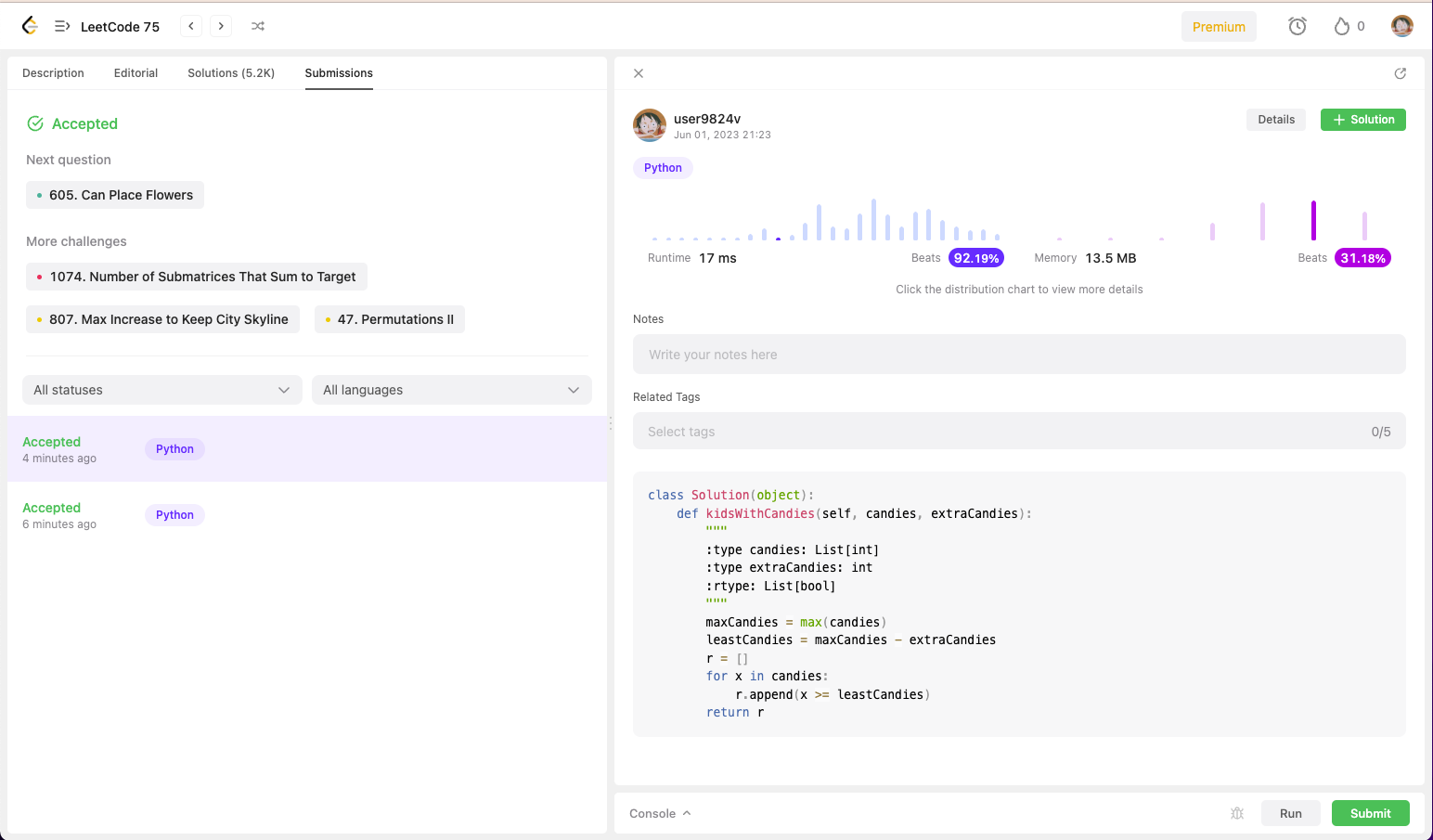|
|
马上注册,结交更多好友,享用更多功能^_^
您需要 登录 才可以下载或查看,没有账号?立即注册
x
本帖最后由 Judie 于 2023-6-1 21:40 编辑
There are n kids with candies. You are given an integer array candies, where each candies[i] represents the number of candies the ith kid has, and an integer extraCandies, denoting the number of extra candies that you have.
Return a boolean array result of length n, where result[i] is true if, after giving the ith kid all the extraCandies, they will have the greatest number of candies among all the kids, or false otherwise.
Note that multiple kids can have the greatest number of candies.
Example 1:
Input: candies = [2,3,5,1,3], extraCandies = 3
Output: [true,true,true,false,true]
Explanation: If you give all extraCandies to:
- Kid 1, they will have 2 + 3 = 5 candies, which is the greatest among the kids.
- Kid 2, they will have 3 + 3 = 6 candies, which is the greatest among the kids.
- Kid 3, they will have 5 + 3 = 8 candies, which is the greatest among the kids.
- Kid 4, they will have 1 + 3 = 4 candies, which is not the greatest among the kids.
- Kid 5, they will have 3 + 3 = 6 candies, which is the greatest among the kids.
Example 2:
Input: candies = [4,2,1,1,2], extraCandies = 1
Output: [true,false,false,false,false]
Explanation: There is only 1 extra candy.
Kid 1 will always have the greatest number of candies, even if a different kid is given the extra candy.
Example 3:
Input: candies = [12,1,12], extraCandies = 10
Output: [true,false,true]
Constraints:
n == candies.length
2 <= n <= 100
1 <= candies[i] <= 100
1 <= extraCandies <= 50
Hint
Use greedy approach. For each kid check if candies[i] + extraCandies ≥ maximum in Candies[i].
Judy
Python O(n)
- class Solution(object):
- def kidsWithCandies(self, candies, extraCandies):
- """
- :type candies: List[int]
- :type extraCandies: int
- :rtype: List[bool]
- """
- maxCandies = max(candies)
- leastCandies = maxCandies - extraCandies
- r = []
- for x in candies:
- r.append(x >= leastCandies)
- return r

|
|
 ( 粤ICP备18085999号-1 | 粤公网安备 44051102000585号)
( 粤ICP备18085999号-1 | 粤公网安备 44051102000585号)